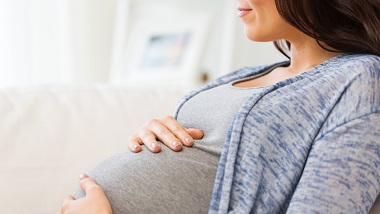
The guideline, published today (19 August 2021), replaces the recommendations from NICE’s 2008 guideline on antenatal care and aims to improve the consistency of care across the country.
The update offers practical advice on the routine care of women and their babies during pregnancy. It aims to ensure that women are offered regular check-ups, information and support, and includes recommendations on a range of topics from monitoring foetal growth to the sleep position to avoid during pregnancy.
The guideline highlights the importance of informed shared decision making. Pregnant women should be listened to and healthcare professionals should be responsive to their needs and preferences. The risks, benefits and implications of any assessment, intervention or procedure should be discussed with the woman when offered, and her decisions on her care should be respected even if they differ to the view of the health professional.
For the first time, the guideline addresses the role that partners play in supporting women through their pregnancy and includes recommendations about how to involve them in antenatal appointments (according to the woman’s preferences) and what information to provide them.
The guideline includes recommendations around the management of common conditions that occur in pregnancy, including heartburn, nausea and vomiting, and pelvic pain.
Accompanying the guideline is a detailed schedule of antenatal appointments as a guide for healthcare professionals. The schedule includes timings of appointments, what tests to offer at each appointment, and what discussions to have with the woman and their partner.
The guideline also advises healthcare professionals to be aware that, as outlined in the 2020 MBRRACE-UK report, some groups of women are at greater risk of adverse outcomes than others and may need additional support throughout pregnancy.
Dr Paul Chrisp, director of NICE’s Centre for Guidelines, said: “Around 660,000 women give birth in England and Wales each year, and concerns and complications can arise in many pregnancies. Good quality antenatal care, as set out in this guideline, is crucial to identify and deal with potential problems and reduce the chance of poor outcomes for pregnant women and their babies.
“This guideline not only puts pregnant women at the heart of their care, but also recognises the vital role played by partners throughout her pregnancy. We’re pleased that recommendations aimed at promoting partner involvement during antenatal care are included in this guideline.
“It’s also important that health professionals are aware of the differences in outcomes between some groups of women, and interventions to improve engagement, support and closer monitoring of women who would benefit from this need to be explored.”
Dr Jo Mountfield, Vice President at the Royal College of Obstetricians and Gynaecologists, said: “We welcome these updated guidelines on antenatal care from NICE.
“The COVID-19 pandemic has emphasised the importance of birth partners being with a woman throughout their pregnancy journey. We are very pleased to see that partner involvement has been addressed in the new guidelines with suggestions on how maternity services can adapt to better include partners such as offering weekend or evening antenatal appointments.
“We also fully support women receiving their first midwife appointment where possible by nine weeks. This will ensure access to maternity services at an early stage and provide support for women from the beginning of their pregnancy. Early interaction with maternity services is especially important for women being referred from other places such as refugee centres and schools, so that their needs and risk factors can be assessed and specific care planned.
“We would encourage all hospitals to implement and follow these guidelines so that women are provided with high quality care throughout their pregnancy. It’s important pregnant women feel listened to and are offered regular check-ups, information and support throughout.”
The guideline can be read here.